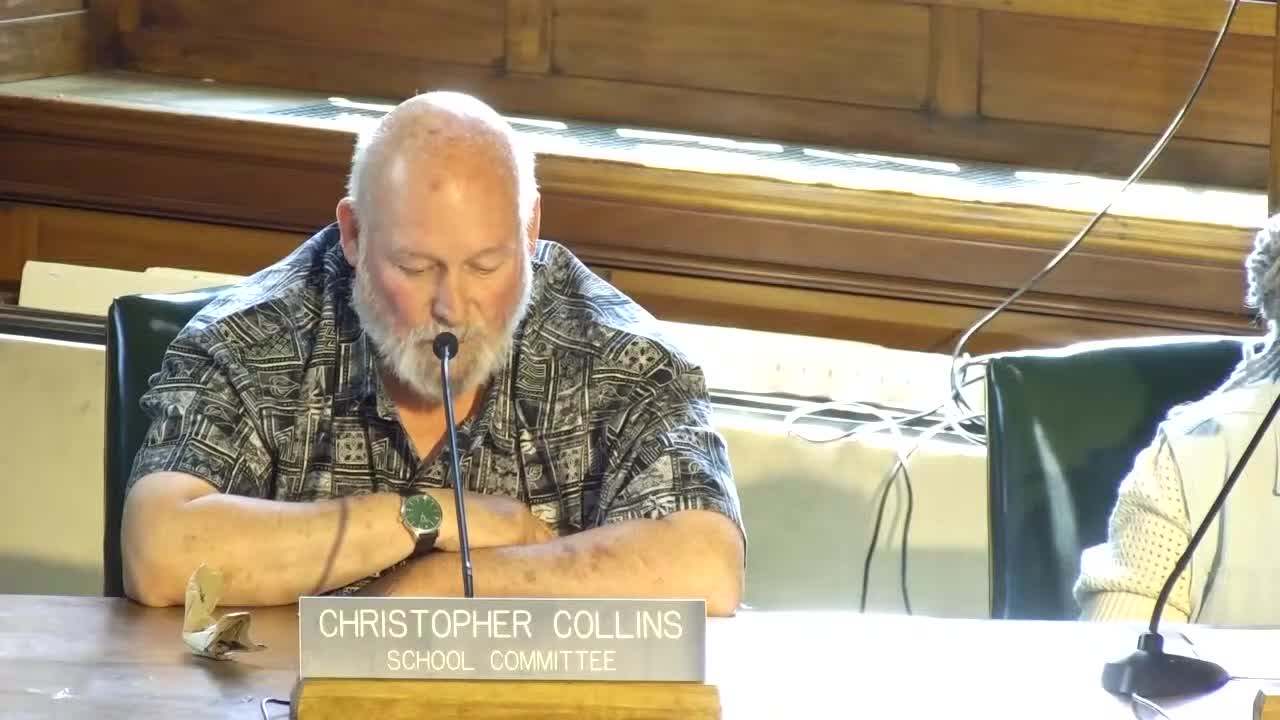Council Faces Controversy Over Open Meeting Law Violation
June 01, 2024 | Springfield Public Schools, School Boards, Massachusetts

This article was created by AI summarizing key points discussed. AI makes mistakes, so for full details and context, please refer to the video of the full meeting. Please report any errors so we can fix them. Report an error »

During a recent government meeting, a contentious discussion arose regarding an open meeting law complaint against the chairperson, which some members deemed frivolous. The complaint suggested that the chair should be barred from participating in meetings for the month of May, coinciding with a press conference held by the Pioneer Valley Project that questioned the chair's ability to lead.
The chair expressed concerns that the complaint appeared to be an attempt by an external agency to influence the selection of the next superintendent by undermining elected officials' participation. The chair emphasized the importance of allowing elected members to make decisions, regardless of differing opinions.
A motion was put forth by Attorney Murphy to adopt a response to the complaint, but the vote resulted in a tie, leading to the motion's failure. Legal counsel warned that without a response to the complainant within the mandated 14-day period, the body would be in violation of the open meeting law, which could prompt an investigation by the attorney general.
Several members expressed dissatisfaction with the process, citing insufficient time to review the response document before the meeting. Concerns were raised about the handling of agenda items, particularly regarding last-minute additions that had been repeatedly discouraged.
The meeting underscored the challenges faced by the body in navigating legal requirements while addressing internal disagreements, highlighting the potential consequences of failing to comply with open meeting laws.
The chair expressed concerns that the complaint appeared to be an attempt by an external agency to influence the selection of the next superintendent by undermining elected officials' participation. The chair emphasized the importance of allowing elected members to make decisions, regardless of differing opinions.
A motion was put forth by Attorney Murphy to adopt a response to the complaint, but the vote resulted in a tie, leading to the motion's failure. Legal counsel warned that without a response to the complainant within the mandated 14-day period, the body would be in violation of the open meeting law, which could prompt an investigation by the attorney general.
Several members expressed dissatisfaction with the process, citing insufficient time to review the response document before the meeting. Concerns were raised about the handling of agenda items, particularly regarding last-minute additions that had been repeatedly discouraged.
The meeting underscored the challenges faced by the body in navigating legal requirements while addressing internal disagreements, highlighting the potential consequences of failing to comply with open meeting laws.
View full meeting
This article is based on a recent meeting—watch the full video and explore the complete transcript for deeper insights into the discussion.
View full meeting
